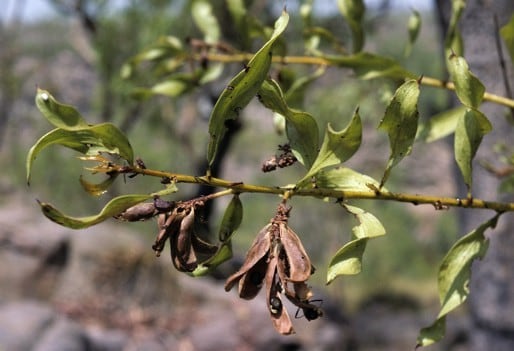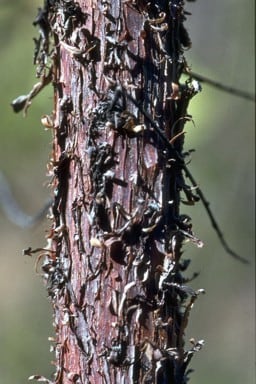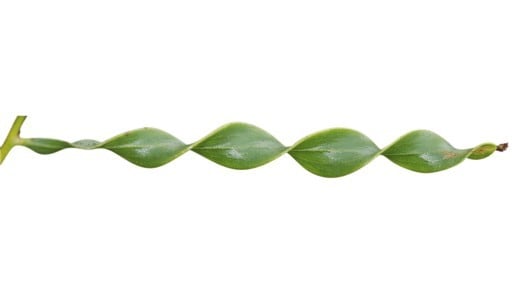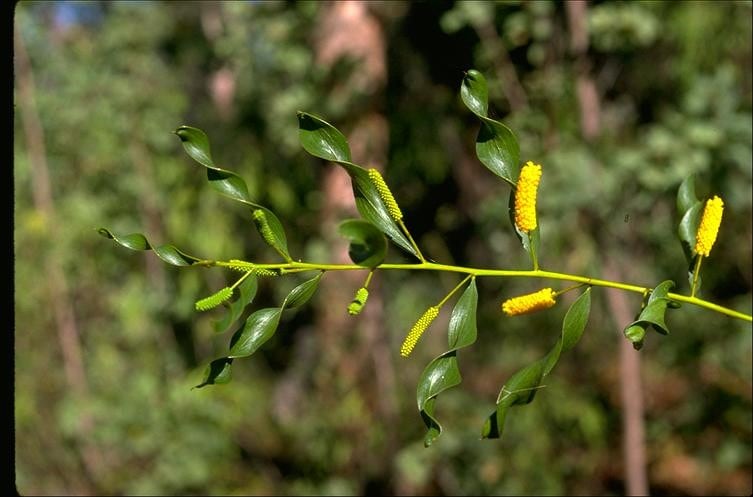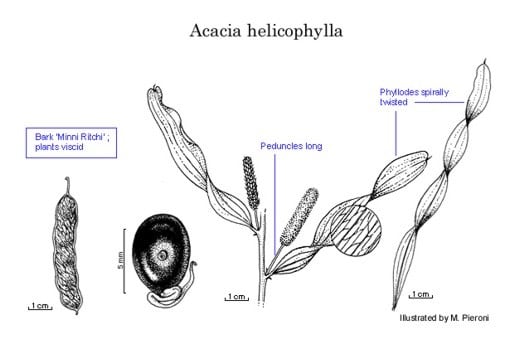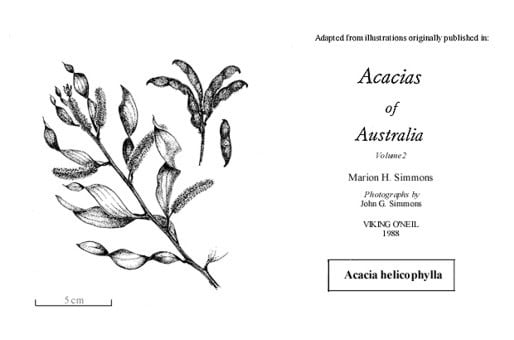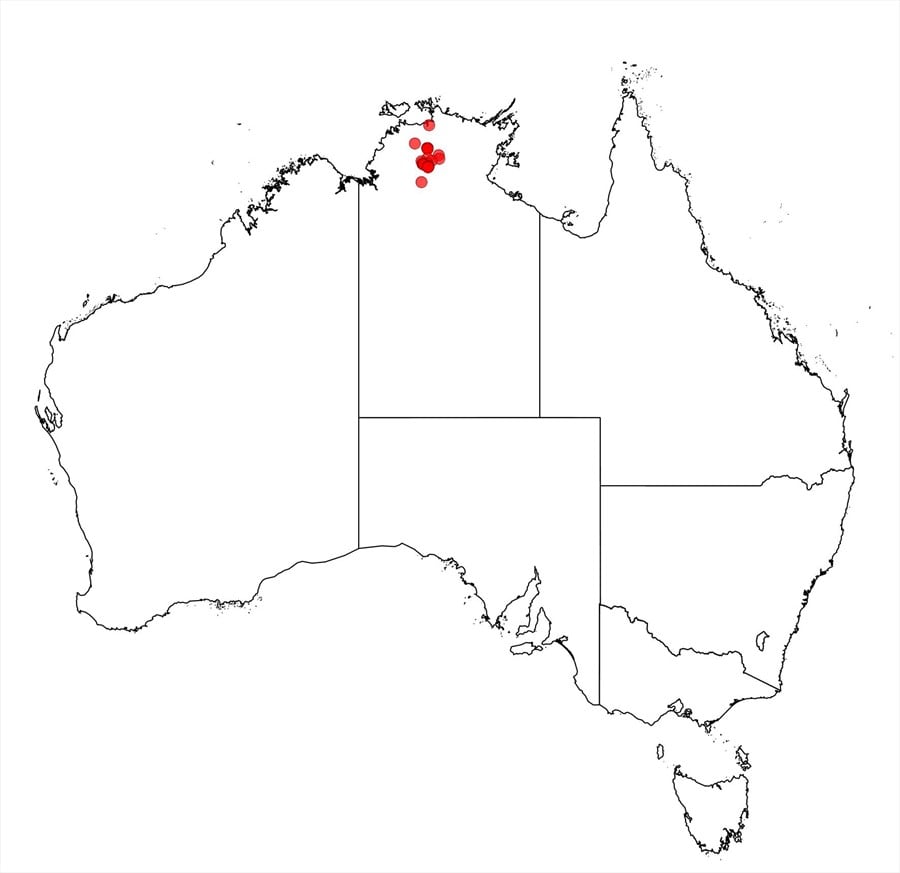Acacia helicophylla Pedley
WATTLE
Acacias of Australia
Family
Fabaceae
Distribution
Restricted to tropical N.T. in a small area between Katherine Gorge and Gunlom (UDP) Falls.
Description
Shrub to 4 m high, viscid. Bark ‘Minni Ritchi’, peeling in strips, grey, red-brown to blackish. Upper branchlets slightly angular, otherwise terete, densely appressed-puberulous and with broad irregular bands of resinous tissue. Phyllodes narrowly oblong to elliptic or oblanceolate, undulate or spirally twisted, (3.5–) 5–11 (–12.5) cm long, (4–) 6–30 mm wide, narrowed towards base, obtuse to retuse with a dark fine mucro to 3 mm long at apex, minutely tuberculate, hairy mostly on 6–8 longitudinal nerves and margins, with prominent midnerve and 2–4 subprominent nerves; minor nerves 2 per mm, coarsely reticulate; gland 1, basal, to 6 mm above pulvinus. Spikes 1 or 2 in axils, 1.5–3.5 cm long, yellow. Flowers 5‑merous, longitudinally striate; calyx 0.6–1.2 mm long, dissected to 1/2, glabrous; corolla 1.4–2 mm long, dissected to 1/2–2/3, glabrous; ovary glabrous or slightly hairy. Pods narrowly oblong, sometimes slightly constricted between seeds, ±septate, curved apiculate, (1.8–) 2.5–7 cm long, 5–10 mm wide, thinly coriaceous, reticulately nerved, with fine hyaline hairs to 1.2 mm long or subglabrous. Seeds longitudinal, elliptic, turgid, 4.5–5.7 mm long, dark brown; areole orbicular, small, closed, often paler than rest of seed and surrounded by a pale halo.
Phenology
Flowers Mar.–Aug.
Habitat
Grows amongst rocks on sandstone cliffs and steep hillsides, in sandy, skeletal soils.
Specimens
N.T.: Edith Falls, L.G.Adams 1763 (BRI, CANB, DNA, K, L, MEL, NSW, US); UDP Falls, N.Byrnes 1782 (DNA, NSW); Katherine Natl Park, cult., M.D.Tindale 6026 (NSW).
Notes
The spirally twisted phyllodes with up to five or six turns in young plants are unique in Acacia. The curved, apiculate, ±septate pods are also unusual. The striate flowers are similar to some tropical species in sect. Lycopodiifoliae but the phyllodes are quite different.
FOA Reference
Data derived from Flora of Australia Volumes 11A (2001), 11B (2001) and 12 (1998), products of ABRS, ©Commonwealth of Australia
Author
Dr M.D.Tindale and Dr P.G.Kodela with the assistance of M.Bedward, S.J.Davies, C.Herscovitch, D.A.Keith and/or D.A.Morrison
Minor edits by J.Rogers
This identification key and fact sheets are available as a mobile application:
URL: https://apps.lucidcentral.org/wattle/
© Copyright 2018. All rights reserved.
